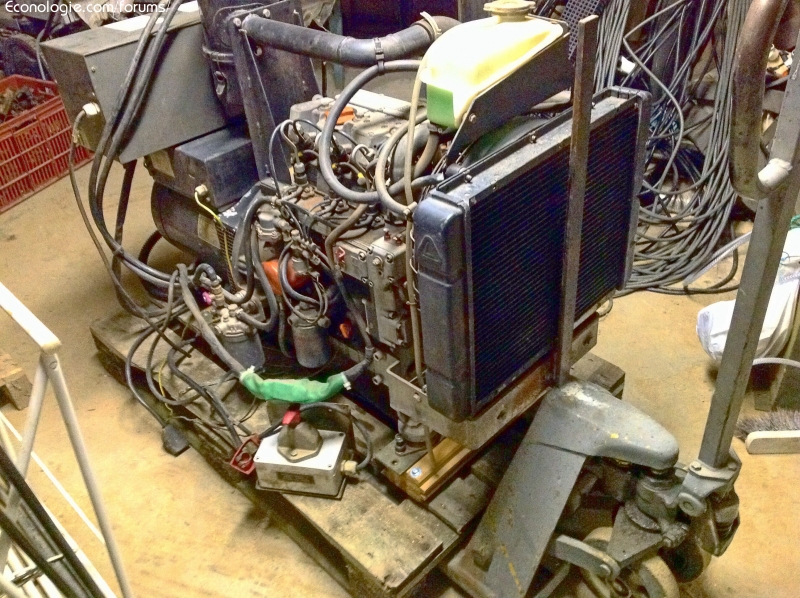I just got hold of a former army group based on a Lombardini LDW3 water-cooled 1503-cylinder diesel engine that trigenerates a 12KW three-phase generator.
For the moment I can only do cogeneration because this engine does not have an exhaust manifold equipped with an exchanger and it is an option that does not exist for this type of engine and from this manufacturer.
My question is the following :
How best to recover the heat that comes out of the exhaust pipe?
For the moment, the group is planned to be installed in a "bunker" for its soundproofing and its exhaust pipe passes through a horizontal stainless steel casing 167 mm in diameter and 15m long before opening into a chimney.
I tried to make short for this first question but I remain at your disposal and thank you in advance for your suggestions.







